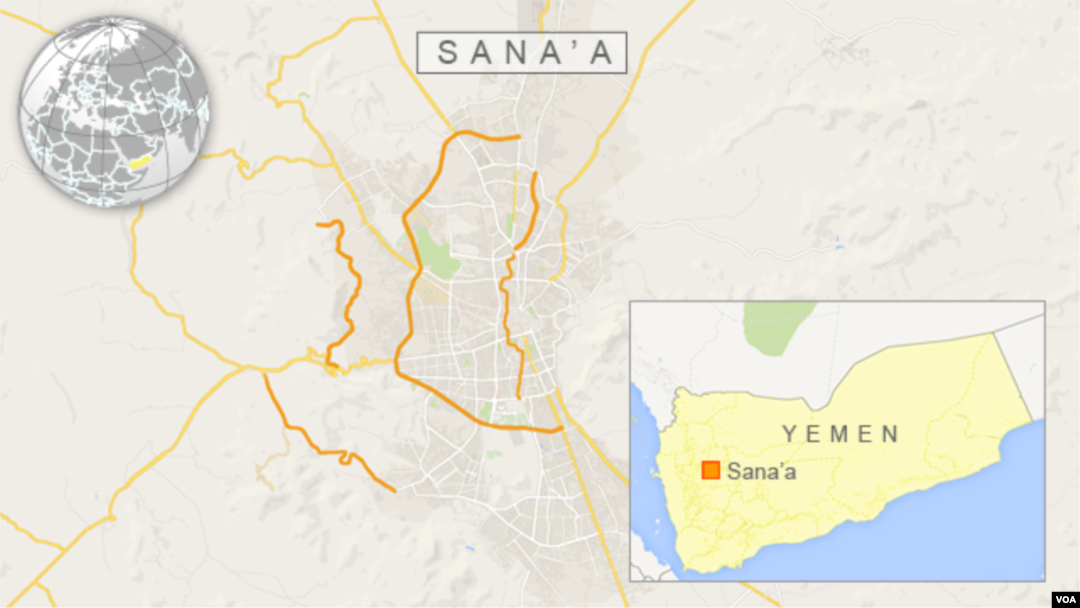The United States, Britain and France announced the closure of their embassies in Yemen because of deteriorating security conditions in the country.
The U.S. State Department said late Tuesday that its embassy staff had been moved out of the Yemeni capital, Sana'a, while Britain announced early Wednesday that its staff had been withdrawn. France will close its embassy on Friday.

Sana'a, Yemen
State Department spokeswoman Jen Psaki said in a statement, "Recent unilateral actions disrupted the political transition process in Yemen, creating the risk that renewed violence would threaten Yemenis and the diplomatic community in Sana’a.
"The United States remains firmly committed to supporting all Yemenis who continue to work toward a peaceful, prosperous, and unified Yemen. We will explore options for a return to Sana’a when the situation on the ground improves," the statement said.
The U.S., Britain and France all advised citizens not to travel to Yemen, and for those already in the country to leave.
Country in turmoil
Yemen has been mired in political turmoil for months.
Last month, Houthi Shi'ite rebels took over the residence of President Abd Rabbuh Mansour Hadi, prompting him and his Cabinet to resign.
The rebels finalized their takeover of the country last Friday, announcing they had dissolved parliament and were establishing a new presidential council to run Yemeni affairs.
At the Pentagon, a spokesman Tuesday acknowledged that Yemen's political unrest is impacting U.S. counter-terrorism capabilities, but said the U.S. military is still training some Yemeni forces and still could carry out operations inside the country against al-Qaida militants.
"There's no question as a result of the political instability in Yemen that our counter-terrorism capabilities have been ... affected," Rear Admiral John Kirby said at a news briefing.
Earlier this month, four former U.S. ambassadors -- Ryan Crocker, Robert Ford, James Jeffrey and Ronald Neumann -- said they opposed closing the embassy if that action was to be done “solely on the basis of danger” in Sana'a, and that such a decision should not be made “primarily in Washington.”
The ambassadors wrote in a blog published by The Hill, a Capitol Hill newspaper, that “the interaction with key players in Yemen can only be maintained by an ambassador,” who should be the last to leave the country. “The ambassador will have to calmly weigh risk against mission utility,” they added.
VOA's Sharon Behn contributed to this report.


